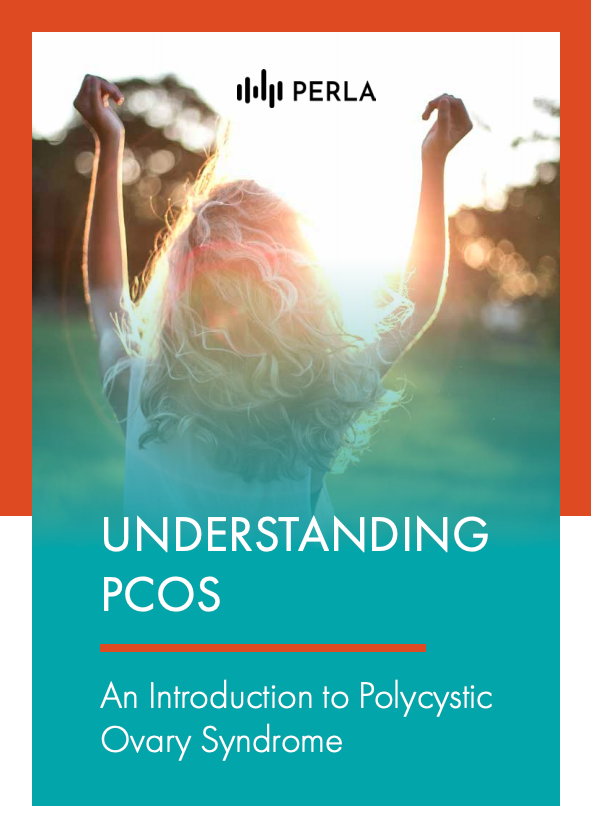PCOS or polycystic ovary syndrome is often connected to other serious conditions, and one of them is endometrial cancer. Learn why PCOS increases your risk for this type of cancer and what you can do about it.
The Role of PCOS in Endometrial Cancer
Endometrial cancer, sometimes called uterine cancer, develops in the lining of the uterus and is the most common cancer of the female reproductive system.1 Worldwide it affects about 382,069 women each year, with 89,929 deaths attributed to endometrial cancer in 2018.2
The majority of these cases are adenocarcinomas—the most common form of endometrial cancers. Most sufferers are post-menopausal women with a mean age of 60-65 years. However, 25% of all cases occur in women under the age of 50.
The risk factors for uterine cancer include:3
- early menarche (onset of period)
- late menopause
- nulliparity (never completed a pregnancy beyond 20 weeks)
- family history of colon, uterine, or ovarian cancer
- obesity
- diabetes
- high blood pressure
- polycystic ovary syndrome
- hormone replacement therapy (taking estrogen without progesterone)
- tamoxifen (a breast cancer drug)
PCOS as a Risk Factor
PCOS increases endometrial cancer risk by sixfold in premenopausal women.4 The key mechanism for the development of endometrial cancer is the triad of obesity, excess insulin in the blood (hyperinsulinemia), and diabetes, which are all commonly seen in PCOS.5
Furthermore, abnormal hormone levels are a key characteristic of PCOS, such as high testosterone and estrogen and low progesterone. This hormone imbalance plays a part in the development of some forms of endometrial cancer.6
Hormone Imbalance in PCOS
If you have PCOS, you may experience menstrual irregularities due to elevated testosterone levels and insulin resistance. The cells of the uterine lining (endometrium) are still hormonally and metabolically active even if your period is irregular. So, there’s uterine buildup but the lining is not shed properly.
The uterine buildup is no longer needed by the body and must be expelled through monthly menstruation. It is the job of progesterone to cause the uterus to shed its lining, but many women with PCOS have insufficient levels of this hormone.
The balance of estrogen and progesterone keeps the endometrium healthy. The endometrium, in response to the rise of estrogen in each cycle, gets thicker and thicker. Without enough progesterone to counter this process, the endometrium can become too thick and its cells altered, leading to a pre-cancerous condition called endometrial hyperplasia.5
PCOS and Endometrial Hyperplasia
As mentioned, endometrial hyperplasia develops when there is too much estrogen and not enough progesterone. Both endometrial hyperplasia and endometrial carcinoma share the same risk factors. Obesity, which is common in PCOS, contributes to the increase of estrogen levels because fat cells store and produce estrogen.7 More fat cells mean more estrogen in the body.
Simple or mild hyperplasia may go away on its own or with hormone therapy. The atypical types of hyperplasia are frequently found to progress into cancer. Up to 28% of untreated complex atypical hyperplasia will develop into invasive cancer.8
It is therefore important to prevent the progression of endometrial hyperplasia to endometrial cancer by treating PCOS in high-risk women. If it’s been several months since you’ve last menstruated, you need to speak to your gynecologist.
How Endometrial Cancer is Diagnosed and Treated
There are no reliable screening tests for endometrial cancer in women without symptoms. But a pap test used to detect cancer of the cervix can sometimes find early endometrial cancers. In symptomatic patients or those who are at high risk for uterine cancer, your doctor may perform an endometrial biopsy or transvaginal ultrasound to diagnose or rule out malignancy.9
Women past their childbearing years with endometrial hyperplasia are often advised to undergo a hysterectomy to remove the uterus. Treatment is more conservative for younger women who desire to get pregnant. Progestin treatment in the form of injections or oral medications is a less invasive approach.
How to Reduce Your Risk
Treating your PCOS can reduce your risk of endometrial cancer and endometrial hyperplasia. Regulate your hormone levels early to prevent prolonged exposure of the uterus to elevated estrogen levels. Ask your doctor or your PCOS care team on how to regulate your hormone levels safely, and how to best monitor for endometrial cancer.
Sources:
- American Cancer Society. Key Statistics for Endometrial Cancer. Cancer.org. https://www.cancer.org/cancer/endometrial-cancer/about/key-statistics.html. Published January 8, 2020.
- Bray F, Ferlay J, Soerjomataram I, Siegel RL, Torre LA, Jemal A. Global cancer statistics 2018: GLOBOCAN estimates of incidence and mortality worldwide for 36 cancers in 185 countries. CA: A Cancer Journal for Clinicians. 2018;68(6):394-424. doi:10.3322/caac.21492
- CDC Breast Cancer. What Are the Risk Factors for Uterine Cancer? Centers for Disease Control and Prevention. https://www.cdc.gov/cancer/uterine/basic_info/risk_factors.htm. Published May 1, 2020.
- Yin W, Falconer H, Yin L, Xu L, Ye W. Association Between Polycystic Ovary Syndrome and Cancer Risk. JAMA Oncology. 2019;5(1):106. doi:10.1001/jamaoncol.2018.5188
- Shafiee MN, Khan G, Ariffin R, et al. Preventing endometrial cancer risk in polycystic ovarian syndrome (PCOS) women: Could metformin help? Gynecologic Oncology. 2014;132(1):248-253. doi:10.1016/j.ygyno.2013.10.028
- American Cancer Society. Endometrial Cancer Risk Factors. Cancer.org. https://www.cancer.org/cancer/endometrial-cancer/causes-risks-prevention/risk-factors.html. Published 2017.
- Cleveland Clinic. Atypical Endometrial Hyperplasia | Cleveland Clinic. Cleveland Clinic. https://my.clevelandclinic.org/health/diseases/16569-atypical-endometrial-hyperplasia. Published August 28, 2020.
- Lacey JV Jr, Sherman ME, Rush BB, et al. Absolute risk of endometrial carcinoma during 20-year follow-up among women with endometrial hyperplasia. J Clin Oncol. 2010;28(5):788-792. doi:10.1200/JCO.2009.24.1315


